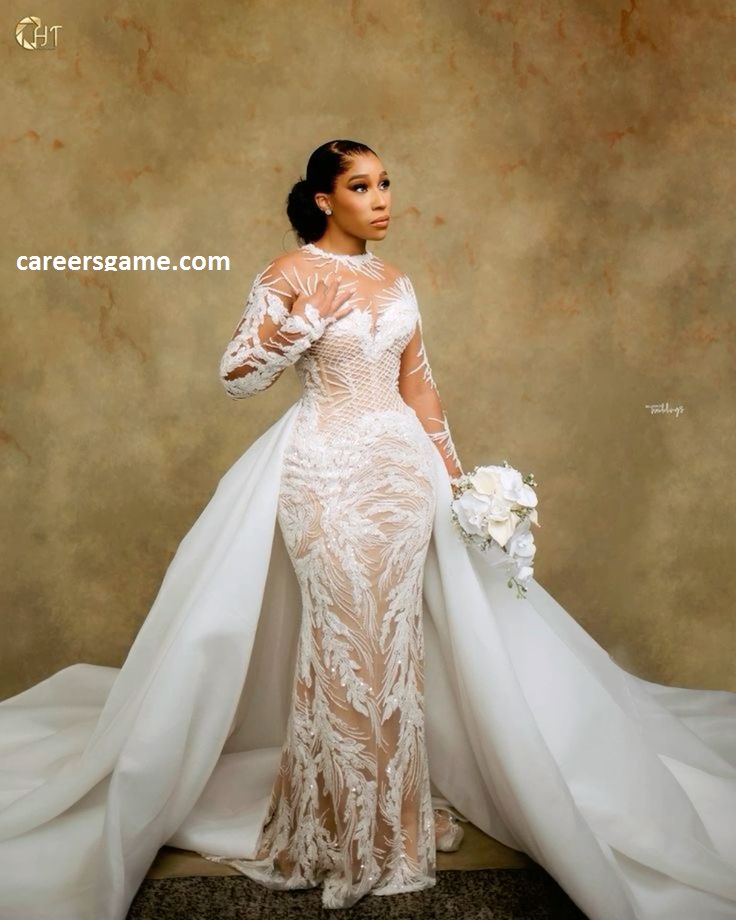African wedding dresses are a vibrant and captivating expression of culture, tradition, and individuality. With a rich tapestry of styles that vary from one region to another, these dresses reflect the diverse cultural heritage across the continent. In this article, we will explore the various types of African wedding dresses, their significance, and the elements that make them so unique and beautiful.
The Cultural Significance of African Wedding Dresses
In many African cultures, weddings are not just a union between two individuals; they are grand celebrations that involve families and communities. The attire worn during these ceremonies often carries deep cultural meanings and symbols.
Traditional Attire
Traditional African wedding dresses are often made from brightly colored fabrics and feature intricate patterns that symbolize the couple’s heritage. For example, in Nigeria, the bride may wear an Aso Oke—a handwoven fabric that signifies status and tradition. The colors and designs can vary based on the tribe and region, with each pattern telling a story or conveying specific meanings.
Symbolism
Colors play a significant role in African wedding attire. For instance, white is traditionally associated with purity, while red can symbolize love and passion. Yellow is often linked to prosperity and wealth. Each culture interprets colors differently, and these meanings influence the choice of wedding attire. By selecting specific colors, couples express their hopes and values for their marriage.
Types of African Wedding Dresses
1. Kente Cloth
Originating from the Akan people of Ghana, Kente cloth is a brightly colored fabric that features intricate designs. Traditionally, it was reserved for royalty and significant occasions. Kente wedding dresses are often adorned with gold threads and vibrant colors, representing wealth and cultural pride. The dresses may be designed as elegant gowns or wrapped in traditional styles, complemented by matching accessories.
2. Xhosa Traditional Attire
In South Africa, the Xhosa community has distinctive wedding attire. The bride often wears a beautifully embroidered dress called a umbhaco made from colorful fabric. The design includes beadwork and is paired with a headpiece called a iqhaza. This attire not only represents beauty but also honors the rich cultural heritage of the Xhosa people.
3. Tunisian Kaftan
In North Africa, particularly in Tunisia, the traditional wedding dress is the kaftan. This long, flowing gown is often made from luxurious fabrics like silk and adorned with intricate embroidery and embellishments. Kaftans come in various colors and styles, often reflecting the bride’s personal taste and family traditions. The dress is typically paired with a sahra or a traditional headpiece, enhancing its regal appearance.
4. Nigerian Wedding Dresses
Nigerian brides often wear two or more outfits on their wedding day, including the Iro and Buba—a wrap skirt and blouse ensemble that showcases the bride’s curves. The attire is often made from rich, colorful fabrics, and the head tie, or gele, adds an elegant touch. In addition to the traditional attire, modern Nigerian brides may also opt for contemporary gowns that incorporate traditional elements.
5. East African Kanga
In East Africa, particularly in countries like Kenya and Tanzania, the kanga is a traditional fabric worn by women. It features vibrant prints and swahili proverbs, often used to convey messages of love and strength. For weddings, the kanga can be fashioned into a beautiful gown or worn as a wrapper with a matching top, symbolizing the bride’s identity and cultural pride.
Contemporary Influences and Fusion Styles
As globalization continues to influence fashion, many African brides are opting for contemporary wedding dresses that incorporate traditional elements. These fusion styles blend modern cuts and silhouettes with traditional fabrics and embellishments, creating a unique look that honors heritage while embracing modernity.
Customization and Personalization
Many brides choose to have their wedding dresses custom-made, allowing for a personal touch that reflects their individuality. This can include incorporating family heirlooms, choosing specific colors that hold personal significance, or combining elements from different cultural traditions.
The Role of Designers
African fashion designers are increasingly gaining recognition on global platforms, showcasing their unique interpretations of traditional attire. Designers like Zizi Cardow, Lisa Folawiyo, and Orapeleng Modutle are known for their innovative designs that merge contemporary fashion with traditional aesthetics, making African wedding dresses a prominent choice for brides worldwide.
Accessories and Complements
The beauty of African wedding dresses is often enhanced by carefully chosen accessories. These can include:
- Jewelry: Traditional jewelry, such as beaded necklaces, earrings, and bracelets, plays a significant role in completing the bridal look. Each piece often holds cultural significance and complements the dress beautifully.
- Headpieces: From the Xhosa iqhaza to the Nigerian gele, headpieces are a vital part of many African bridal ensembles. They add an air of elegance and are often intricately designed to match the wedding attire.
- Footwear: Many brides opt for traditional footwear that complements their dress, such as colorful sandals or embellished heels.
Conclusion
African wedding dresses are more than just garments; they are vibrant expressions of culture, love, and identity. From the intricate patterns of Kente cloth to the elegant flowing kaftans of Tunisia, each dress tells a story that reflects the rich traditions of its origin. As contemporary influences blend with traditional designs, African wedding attire continues to evolve, captivating hearts and inspiring brides around the world.
As couples prepare for their special day, the choice of an African wedding dress is not just about aesthetics; it’s about embracing heritage, celebrating love, and making a statement that honors the past while looking forward to the future. The diversity and beauty of African wedding dresses ensure that each celebration is unique, memorable, and deeply rooted in tradition.



